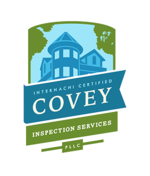Texas Adjuster Licensing & Training - Frequently Asked Questions
Class location:
1425 W Pioneer Dr, Ste. 203
Irving, TX 75061
The class meets 8:00-5:00 each day, with a one-hour lunch break.
If you are unable to have your Self-Study Affidavit notarized before coming to class, please arrive by 7:30 as a notary will be present.
On the last day, when you return from lunch, you will take the exam and you may leave after you finish it. You do not need to stay until 5:00 should you finish before then.
We meet in person.
Students are required to complete 10 hours of self-study prior to class and we meet in class for 30 hours.
At least three students have to be in attendance during the classroom instruction for that time to count toward the total required hours.
You must attend at least 90% of instruction to be eligible to take the exam. If you are unable to complete the required classroom portion by the last day of class, you will not be able to take the exam at that time.
If you are not eligible to take the exam due to incomplete hours, you can make up the hours with the next class.
During the class, you will need an internet capable device (laptop, table, phone, etc.) to take exams.
Due to limited seating and the 10-hour, self-study requirement, payment is due approximately one week prior to class.
Students are required to complete 10 hours of self-study prior to the first day of class (see self-study requirment information).
The state-approved exam is administered on the last day of class, after students return from lunch. Upon completion of the exam, students may leave.
The exam is given at the class location:
1425 W Pioneer Dr, Ste 203
Irving, TX 75061
The exam is graded within minutes of completion.
If you fail the exam, you will receive a breakdown of your performance within each category.
You can return with the next class and retake the exam. You do not need to retake the class, but you are welcome to attend any portion again.
You may take the exam as many times as necessary to pass. We will work with you one-on-one to ensure you have a firm grasp of the material.
There is no additional cost to attend the class again or to retake the exam.
Each person's situation is different and as such, TDI will consider each application. They will require applicable documentation to be submitted with the application.
TDI is the only entity that can issue adjuster licenses.
Upon successful completion of the class, you will receive a class completion certificate that you need attach to your application.
TDIis the only entity that can approve adjuster license applications.
To become a public adjuster, you need to attend a different class, pass an exam for the public adjuster license, and maintain a $10,000 surety bond.
For more information, please review the Texas Administrative Code for Public Insurance Adjusters.
The Texas Adjuster All-Lines license gives you the legal authority to adjust any insurance claim in the state of Texas.
Adjusting claims in other states can be done by one of the following:
- Adjust claims in states that do not require adjusters to be licensed.
- Apply for a reciprocal license in the desired state (see reciprocal states).
- Process claims using a temporary/emergency license. These are only available if the insurance commissioner for that state is responding to a large catastrophic storm (i.e., major hurricane). These licenses are only good for that state and that storm.
- For the states that do not grant reciprocity and no temporary/emergency license is available, you will need to attend a separate class and pass that state's exam.
For more information on reciprocity, see Reciprocal States.
After you submit your application with all necessary documents and fees to TDI, they will notify you via email with your license information or if they have questions about your application. Make sure you provide a valid email on your application.
The processing time can vary though lately, some licenses are granted within hours.
YOu can look up your license information.
You can also eMail TDI.
Yes, you can take this class.
However, taking this class may not count toward obtaining your adjuster license.
If you are not a Texas resident and your resident state (where you live) requires adjusters to be licensed, before you can obtain your Texas adjuster's license, you will need to earn your resident state adjuster license first.
If your state adjuster license is reciprocal with the Texas adjuster license, you will not need to take this class or pass the Texas adjuster license exam. Once you earn your state adjuster license, you can apply for a Texas non-resident adjuster license.
If your resident state does not require adjusters to be licensed, you can attend this class and then apply for a Texas non-resident license.
At this time, we do not teach Xactimate; however, there are a multitude of options (i.e. classroom, webinar, video, etc.) available from other companies.
Due to the wide assortment of adjuster options, we do not guarantee job placement; however, using past experience as a catastrophe adjuster, desk adjuster, team lead, and more, the instructor will offer suggestions on finding suitable and desireable work as an adjuster.
If you plan on working catastrophe claims, consider purchasing the Property Adjuster 101 Guidebook (physical printed version) or (eBook - instand download).
When a firm deploys you to a storm site, if they have never worked with you before, they may not give you many claims as they do not know what you can or cannot do. Several factors affect how many claims you may receive, such as:
- how soon you are deployed to a storm site (using over a dozen tiers, adjusters are ranked and deployed based on their ranking)
- how effective you are processing claims (i.e., managing your time, inspecting properties, preparing estimates)
This guidebook will focus on effectively preparing you to be more successful. You will learn how to
- increase opportunities to receive claim assignments
- select necessary equipment to investigate claims
- determine where you will stay when deployed to a storm site
- contact claimants
- schedule inspections to effectively manage your time
- inspect properties (even if no one is home)
- prepare your estimates to pass file examiner review
- maintain finances
- obtain additional state licenses
- ensure continuing education compliance
- expand appropriate knowledge
- making yourself more marketable to receive more claims
If you have a different question that is not listed, please contact us.



